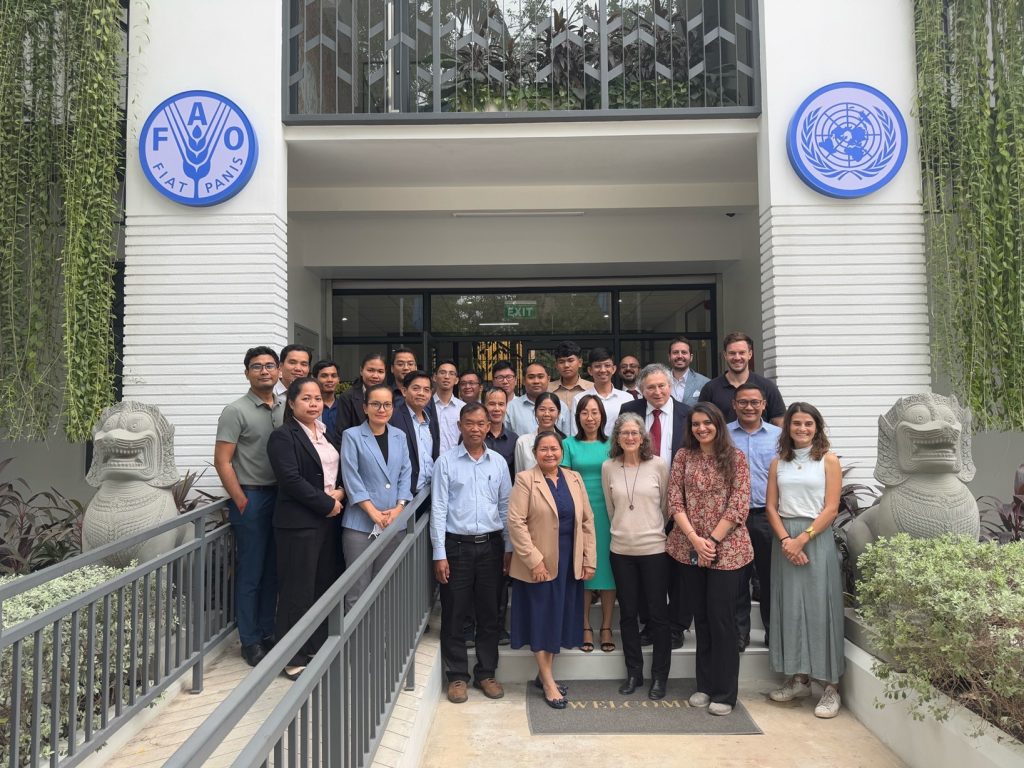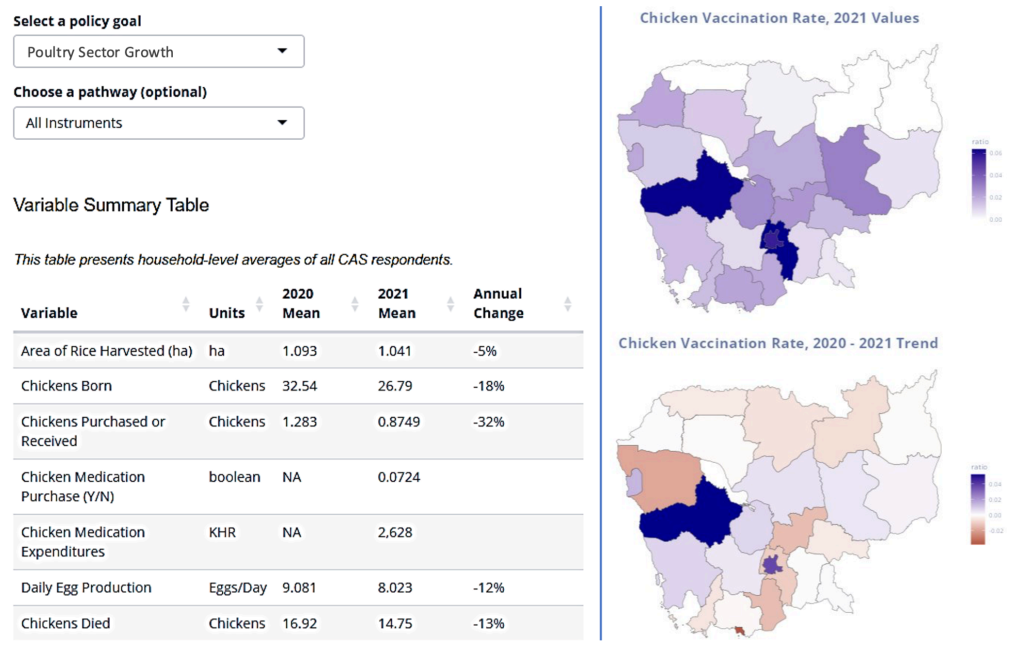In December 2024, members of the Evans School Policy and Analysis Research (EPAR) group visited Cambodia, for the launch of AgQuery, an open-source, publicly-available data-visualization tool that EPAR developed to guide policy analysis and host rich agricultural data like the Cambodian Agricultural Survey. University of Washington Professors Leigh Anderson and Stanley Wood, and EPAR Research Scientist Andrew Tomes and Post-Doctoral Scholar Dr. Vanisha Sharma delivered the training. EPAR Post-Doctoral Scholars Dr. Amaka Nnaji and Dr. Joaquin Mayorga, and RAs Sam Kenney and Micah McFeely, also provided data and other content for the 50×2030 platform. The event was supported by Michael Steiner and Professor Valerio Leone Sciabolazza representing the U.N. International Fund for Agricultural Development (IFAD), and hosted by Todd Hunkin at the Phnom Penh U.N. Food and Agriculture Organization (FAO) office. Action for Research and Development (ARD) organization contributed to arrangements for the event including translations, transportation and more.

Cambodia is emerging as a leader in committing to “evidence-based agricultural development”. EPAR members spent several days in Phnom Penh training more than 30 individuals from seven organizations on AgQuery, including representatives from the Ministry of Agriculture, Forestry and Fisheries (MAFF), National Institute of Statistics (NIS), Royal University of Agriculture (RAU), the Cambodia Australia Partnership for Resilient Economic Development (CAPRED), and Harvest III (a USAID funded project, with a monitoring and evaluation team from Abt Associates), FAO and ARD. The training preceded the December 19th launch of the 2022 Cambodian Agricultural Survey data as part of the multi-agency 50X2030 initiative. IFAD and the FAO, together with the World Bank, are key organizations within this global data initiative supporting 50 countries to transform the collection of key agricultural data by 2030.

While rich agricultural data are now being generated in Cambodia through the efforts of government ministries, the FAO, and other partners, those data will only have impact when they are embedded in policy and investment decision-making. AgQuery is designed to improve and accelerate the link between the production of data and its policy application. Disaggregated, enterprise-specific information can, for instance, provide useful insights into regional variation in poultry-vaccination rates and the design of animal health policies, while changes over time in crop or animal output can help shape and prioritize localized policies targeting productivity-growth.
While other data visualization tools exist, AgQuery is unique in extending beyond its inherent capabilities to flexibly summarize and explore processed survey data, guiding analysts through a series of policy analytic steps: understanding the policy context, articulating policy pathways and instrument options to achieve prioritized goals, flagging stakeholder considerations, recognizing decision-criteria tradeoffs, reviewing outside evidence from the literature, and potentially applying prioritization tools such as benefit-cost analysis to narrow options.

Cambodian analysts have political support, increasing access to relevant, high-quality data, and solid partnerships. As one of those partners, EPAR plans to offer some ongoing desk support as requested by individuals from the MAFF, NIS, and RUA. These engagements are mutually beneficial, enabling us to validate that our novel AgQuery data and policy exploration platform, formulated as a customizable, open-source solution, is indeed context relevant and viable for on-going, in-country maintenance and evolution.
Based on our interactions and the feedback received, AgQuery seems well placed to further support Cambodia in translating its increased investment in agricultural data into better policy choices and outcomes and, thereby, contribute to faster progress toward the nation’s development goals.